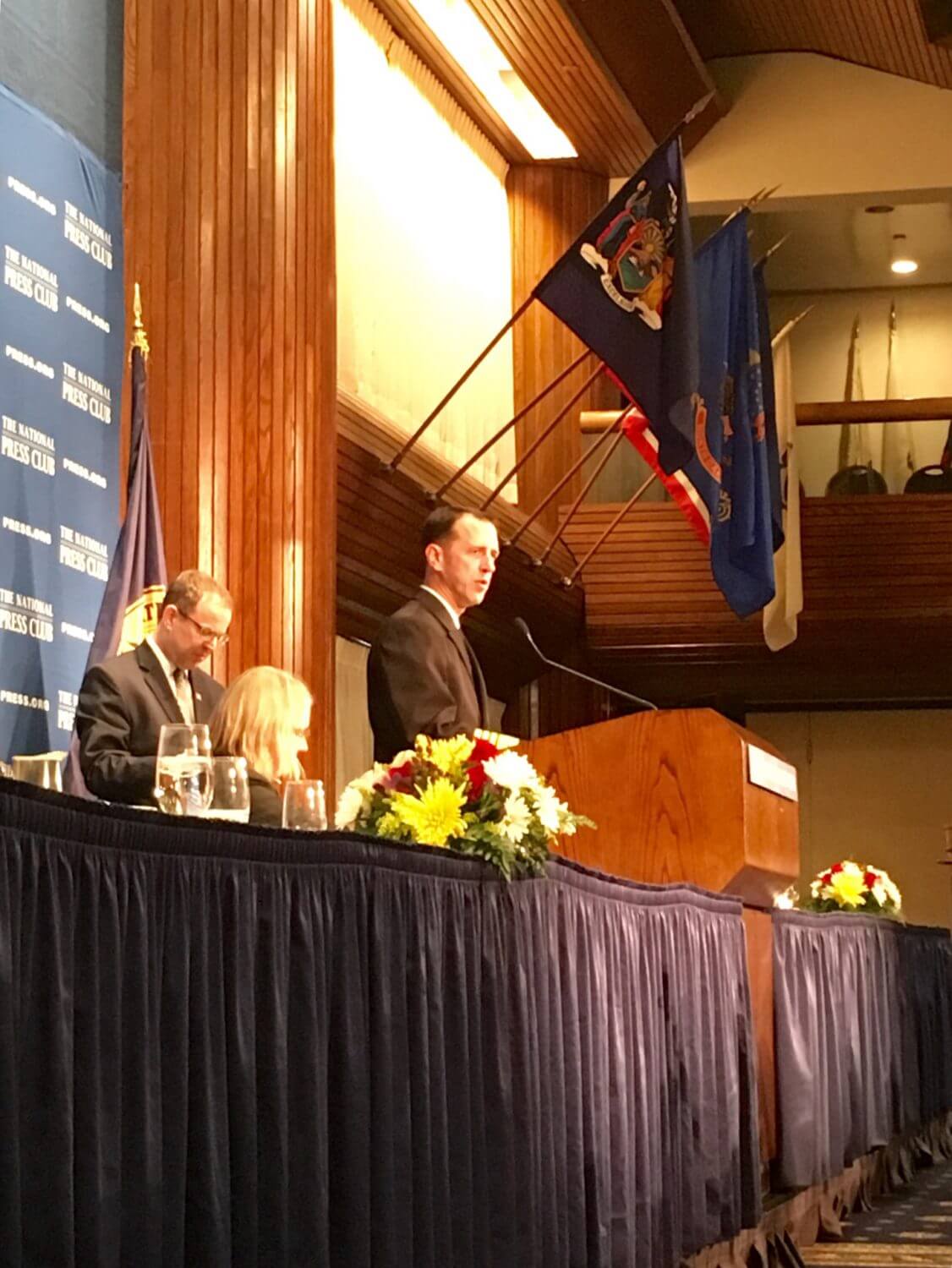WASHINGTON — The U.S. is once again competing for military dominance because of challenges in technology and global information systems by other countries, the chief of U.S. naval operations said in a National Press Club speech Monday.
Adm. John Richardson stressed the Navy’s need to keep its technology and global information systems up-to-date.
“For the first time in 25 years, the U.S. is back in a state of power competition,” he said. Maritime traffic has increased four-fold since 1992, he said, with Russia and China becoming key players on the high seas.
Richardson, who became the 31st chief of naval operations in September, released his plan for a stronger Navy last week, calling it “foundational to the survival of our nation.” Richardson pointed out the Navy’s assessment of the current security environment, including increasing global and technological threats from China and Russia.
“The character of the game has changed,” he said. “We have to turn to our task and fight for advantages with a sense of urgency because this is truly a game of inches.”
The naval chief emphasized that competitors’ new information-enabled weapon technology creates “increasing precision, increasing effect and potentially increasing destructive capacity” that the U.S. must be able to combat.
China and Russia weren’t the only power players on Richardson’s list. He also named North Korea and Iran, saying that North Korea’s provocative actions in North Asia and Tehran’s advanced missiles continue to pose threats.
Beyond the nation-state power players, the Navy also faces an “adaptive and resilient” threat: Terrorist groups that Richardson said have the ability to reach maritime systems, countering the U.S. Navy with speed and precision.
With defense budgets facing cuts, “we’re not going to be able to buy ourselves out of this challenge,” said Richardson.
Instead, Richardson proposed that the Navy adopt ways to speed up, develop and field technology at a faster pace by combining existing efforts and new ways to develop competitive maritime capability.
“My hope is that we have teams that learn and adapt faster than their adversaries,” he said.


